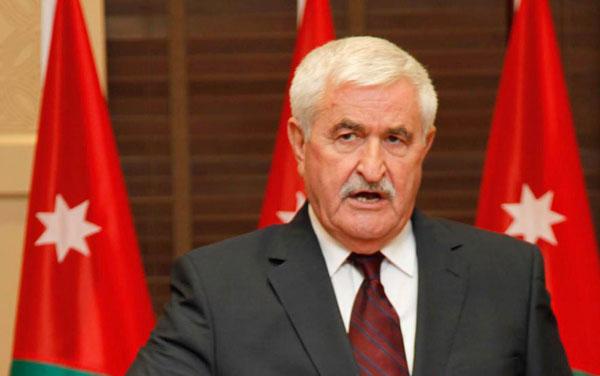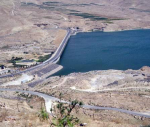You are here
Anti-graft watchdog calls for ‘witness protection system’
By Omar Obeidat - Sep 07,2014 - Last updated at Sep 07,2014

AMMAN — President of the Anti-Corruption Commission (ACC) Samih Bino on Sunday urged the government to implement a “witness protection” programme in corruption cases.
He said that those who report such cases must be safeguarded against harassment, noting that if this is achieved, Jordan would be the first Arab country to put such a system in place.
He made the remarks as he briefed the Cabinet on the agency’s evaluation of progress made in the anti-graft drive, highlighting the positive measures made by the government towards that end and areas that still need more attention.
Minister of State for Media Affairs and Communications Mohammad Momani outlined Bino’s statement at a press conference he held following the Cabinet’s meeting.
According to the minister and a report on the session by the Jordan News Agency, Petra, Bino said that citizens are showing more satisfaction over the government’s performance in terms of anti-corruption efforts.
He underlined measures taken by the Education Ministry to control the General Secondary Certificate Examination (Tawjihi) and a campaign by the Ministry of Water and Irrigation to end water theft as reasons behind such public approval, along with recent decisions by the Jordan Institution for Standards and Metrology, such as blocking the entry of faulty cooking gas cylinders to the country and campaigns by the Jordan Food and Drug Administration to protect public health.
Bino stressed that ministries are “corruption free” in all their operations, adding that the public opinion has been positive over civil service-related decisions such as freezing appointments in government agencies, except technical jobs and recruitment for senior positions, which is now carried out under a special system, which Bino described as “fair and transparent”.
The ACC chief also commended the government’s efforts in fighting favouritism and nepotism.
Other highlights in the anti-graft process, according to the ACC president, include referring executives at public shareholding companies to court for violations and abuse of shareholders’ funds, in addition to a “consistent” system to accredit universities applied by the Higher Education Ministry and the disbanding of more than 30 charities for administrative and financial breaches.
On the other hand, Bino urged the government to “respond more swiftly to remarks by the Audit Bureau and activate internal auditing within state agencies”.
Momani said at the press conference that Prime Minister Abdullah Ensour told Bino that the government is working to implement the motto adopted by His Majesty King Abdullah: “No immunity for the corrupt”.
The premier noted that the practice of wasta (favouritism and making illegitimate gains through connections) has been “remarkably fading away” lately as more institutionalised systems are in place for appointments, especially in high-ranking posts.
In its report covering 2013, the ACC said it had investigated 230 suspected corruption cases last year, of which 47 were referred to the prosecutor general, according to the monitoring agency’s annual report.
According to the report, cases investigated by the commission in 2013 varied from misuse and abuse of public office, theft of public money, embezzlement, “wasta”, bribery, fraud and counterfeit. There were 91 charges relating to public money theft, making it the most committed crime detailed in the report, followed by fraud (34) and abuse of public office (31).
A high-profile case was the leak of the Tawjihi question papers through WhatsApp and other social media networks, the report said.
The report, which was sent to the premier last week, detailed a total number of 1,808 corruption complaints filed with the ACC in 2013, of which 1,151 were disregarded.
Related Articles
Representatives of Tunisia’s anti-graft body visited the Anti-Corruption Commission (ACC) on Tuesday and were briefed on its achievements and duties.
Anti-Corruption Commission (ACC) President Samih Bino on Monday received US Ambassador Alice G. Wells and discussed cooperation between ACC and the US government in programmes and projects to fight corruption.
A specialised team from the Anti-Corruption Commission (ACC) has been formed to examine the outcomes of the Privatisation Evaluation Committee (PEC) report, ACC President Samih Bino said on Thursday.















